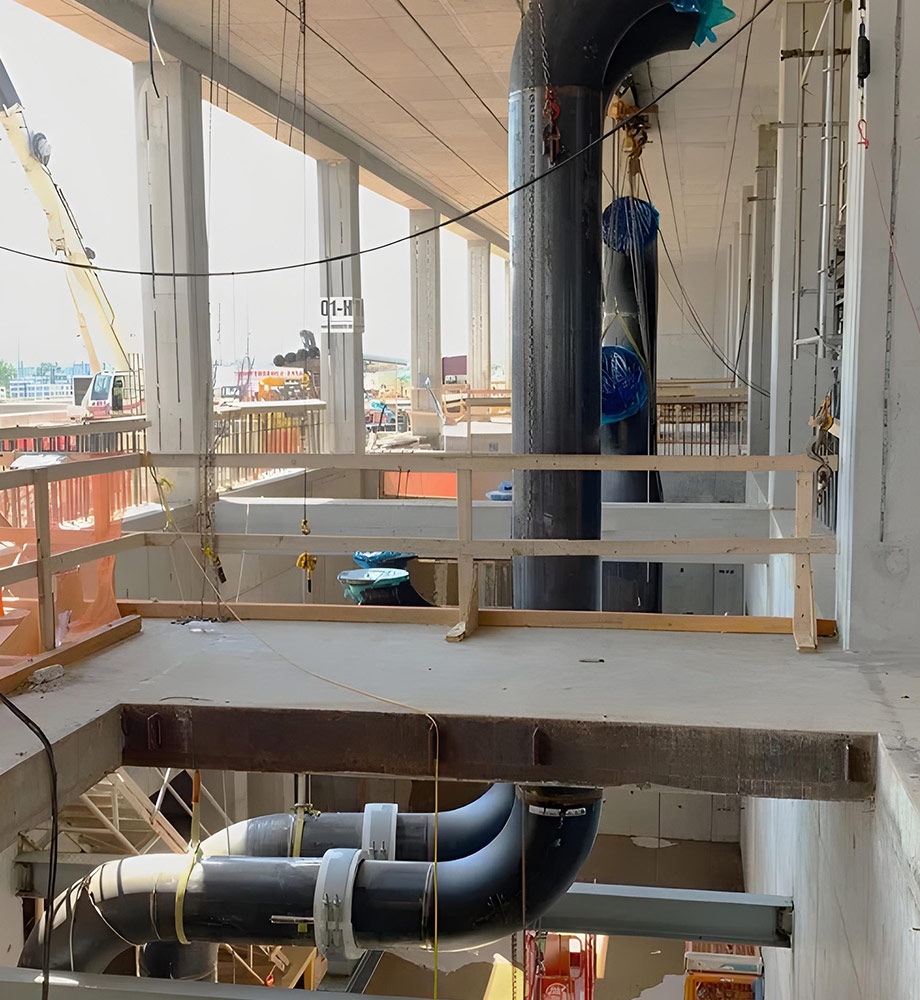Key Features
- Abrasion-resistant inner liner (often >100 mil Nexus® barrier).
- Capable of handling high pressures (100–250 psi typical) and elevated temperatures (up to ~275°F).
- UV-protected exterior coating for sun exposure.
- Standard diameters from 2″ to 30″ (or larger) with matching FRP fittings.
Benefits
- Chemical & Wear Resistance: Ideal for carrying limestone/gyp slurries or HCl acid vapor. Liners prevent corrosion and erosion.
- Lightweight Strength: Easier to install and support than steel risers; long straight runs possible.
- Leak-Free Joints: FRP flange or coupling systems seal strongly, eliminating fluid losses.
Applications
Used in FGD absorber internals and auxiliary systems. Commonly as slurry risers (upward flows to spray headers or tanks), venturi throat pipes, or as short quench duct risers. Riser pipes also appear in recirculation loops and mist eliminator wash down lines. For all these, FRP’s resistance is crucial because the flows are abrasive and acidic.
Technical Specifications
- Construction: Filament-wound FRP with C-glass or E-glass reinforcement. Typical laminate thickness 0.3″–0.6″ for pressure.
- Pressure Rating: Often 50–250 psi (design per ASTM D2996/D2992).
- Standards: ANSI B16.5 flange dimensions; per ISO, ASME or project specs.
Unique Selling Points
Our FRP risers use proprietary vinyl ester laminates that resist both chemical attack and abrasion. We provide FGD-specific options like PP/PVDF liners and immersion-resistant resins. Combined with FRP bends and transition pieces, we deliver turnkey piping assemblies for entire FGD recirculation circuits.

